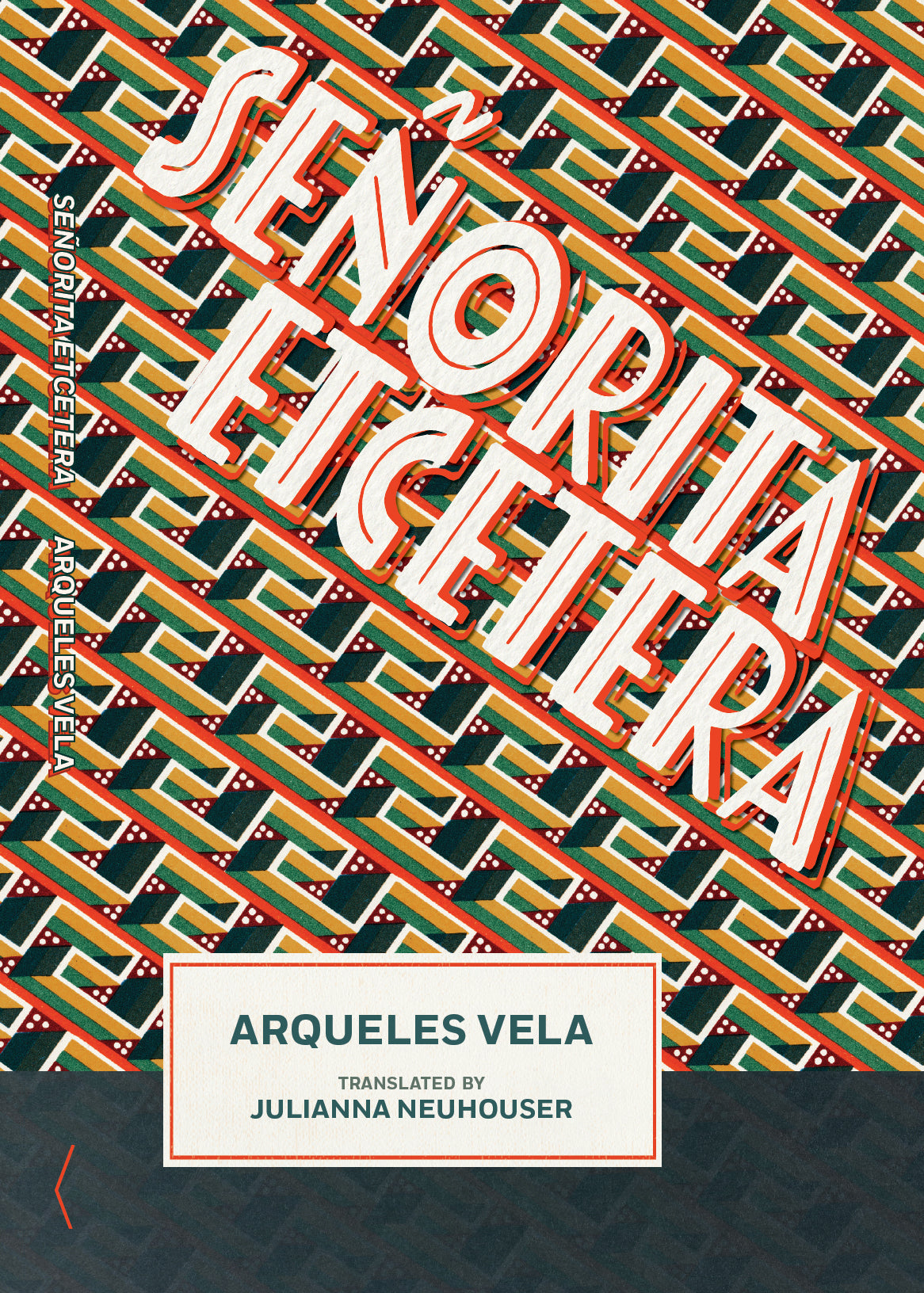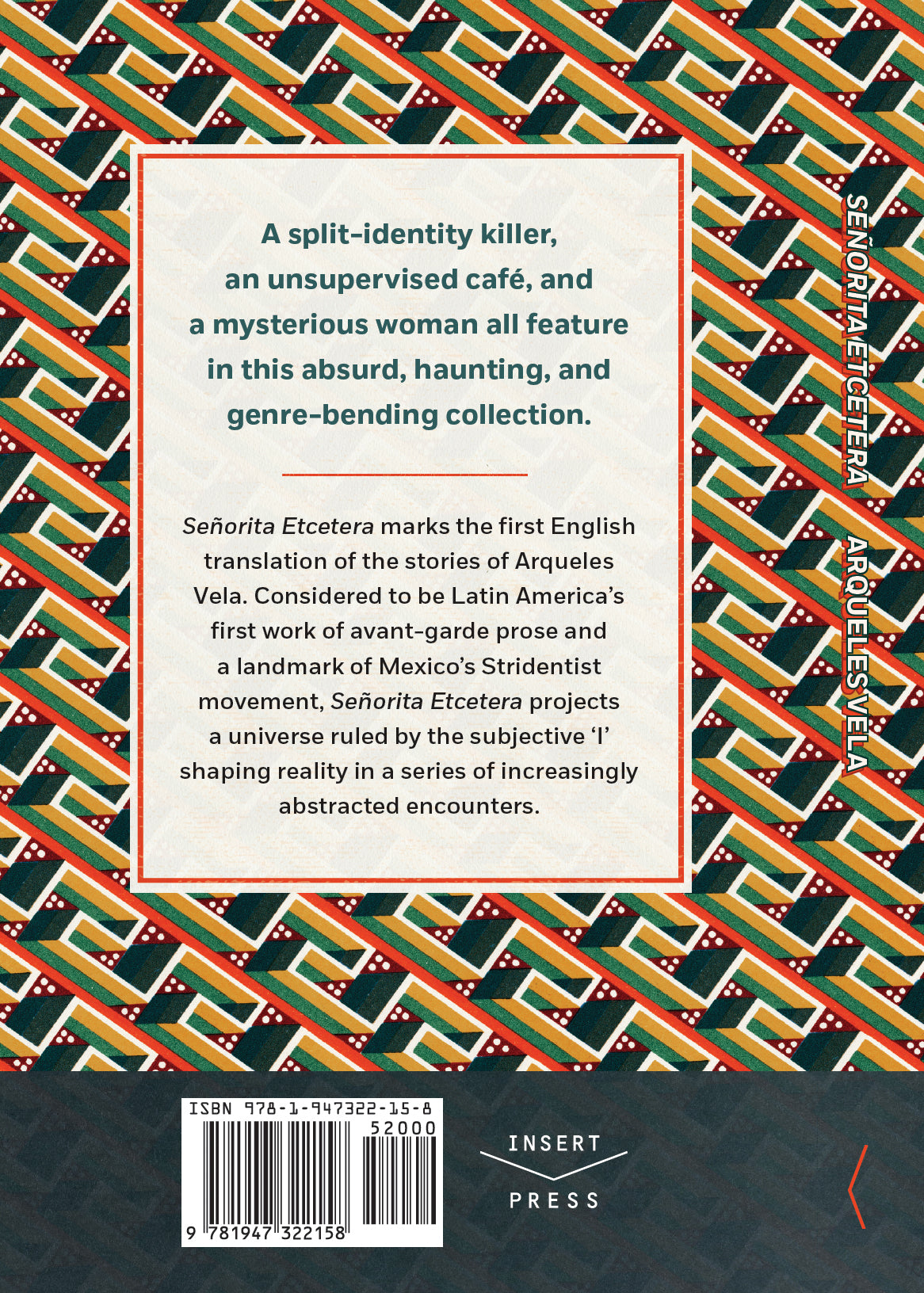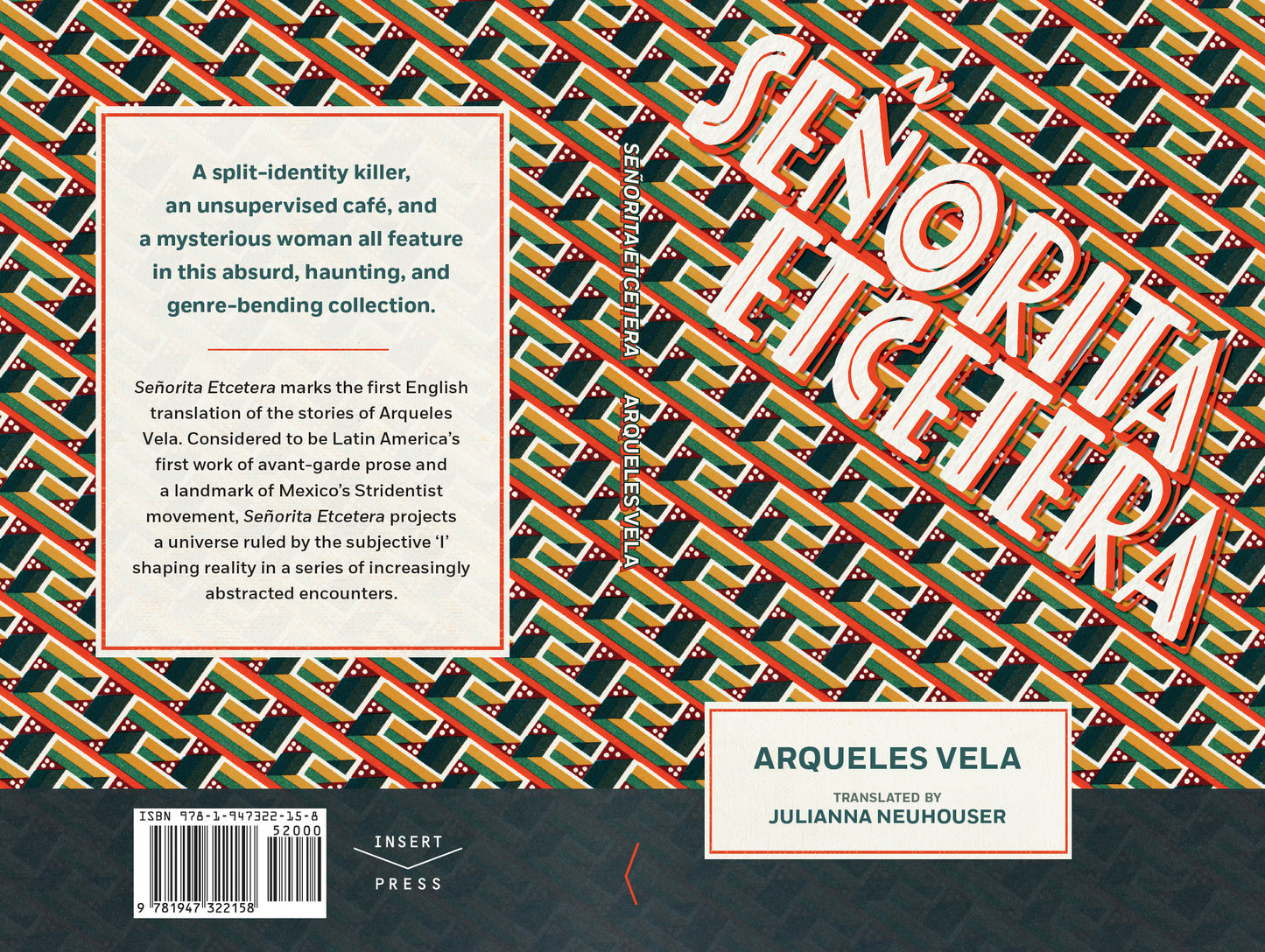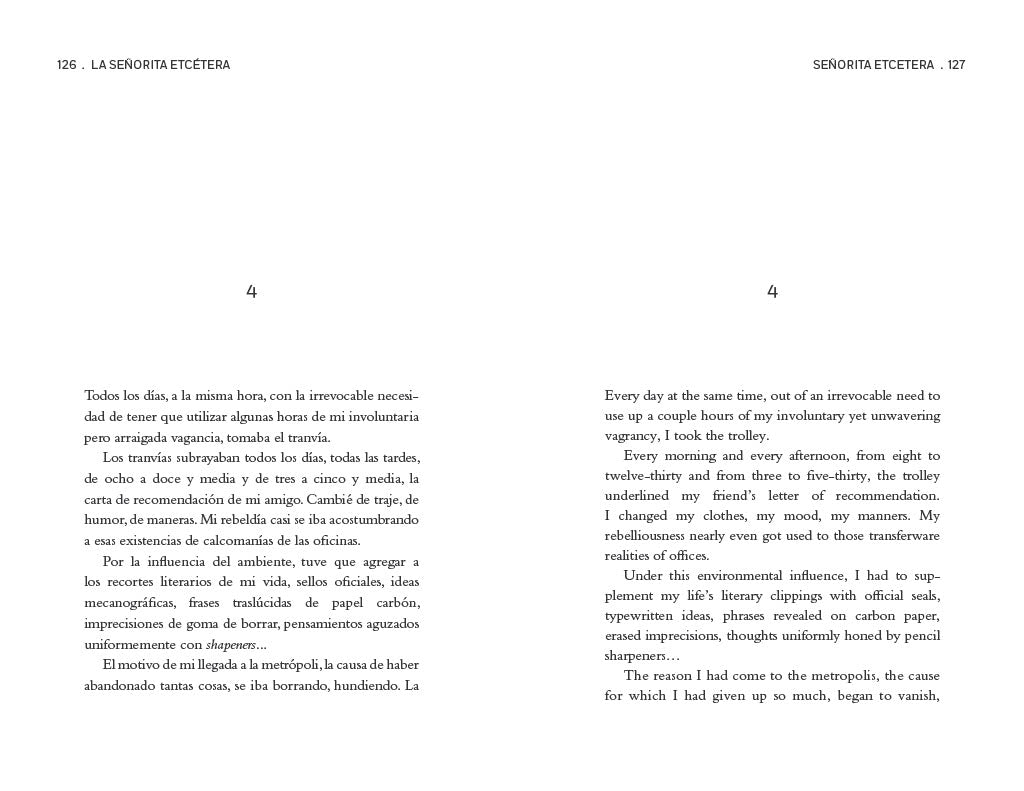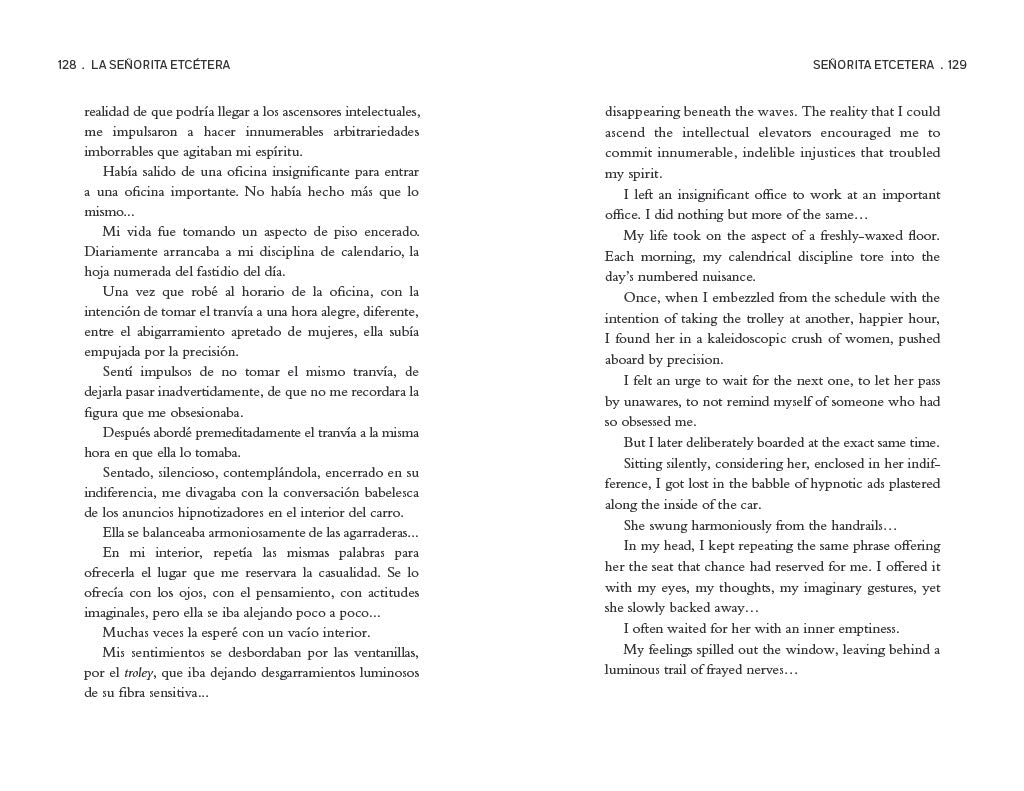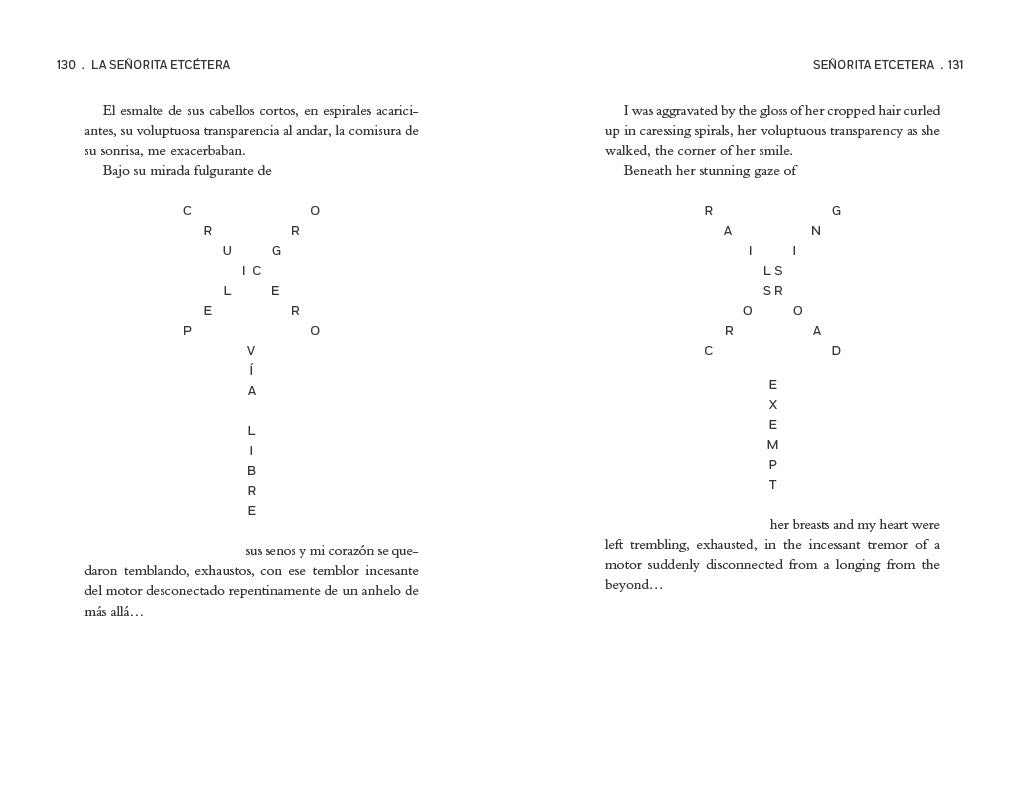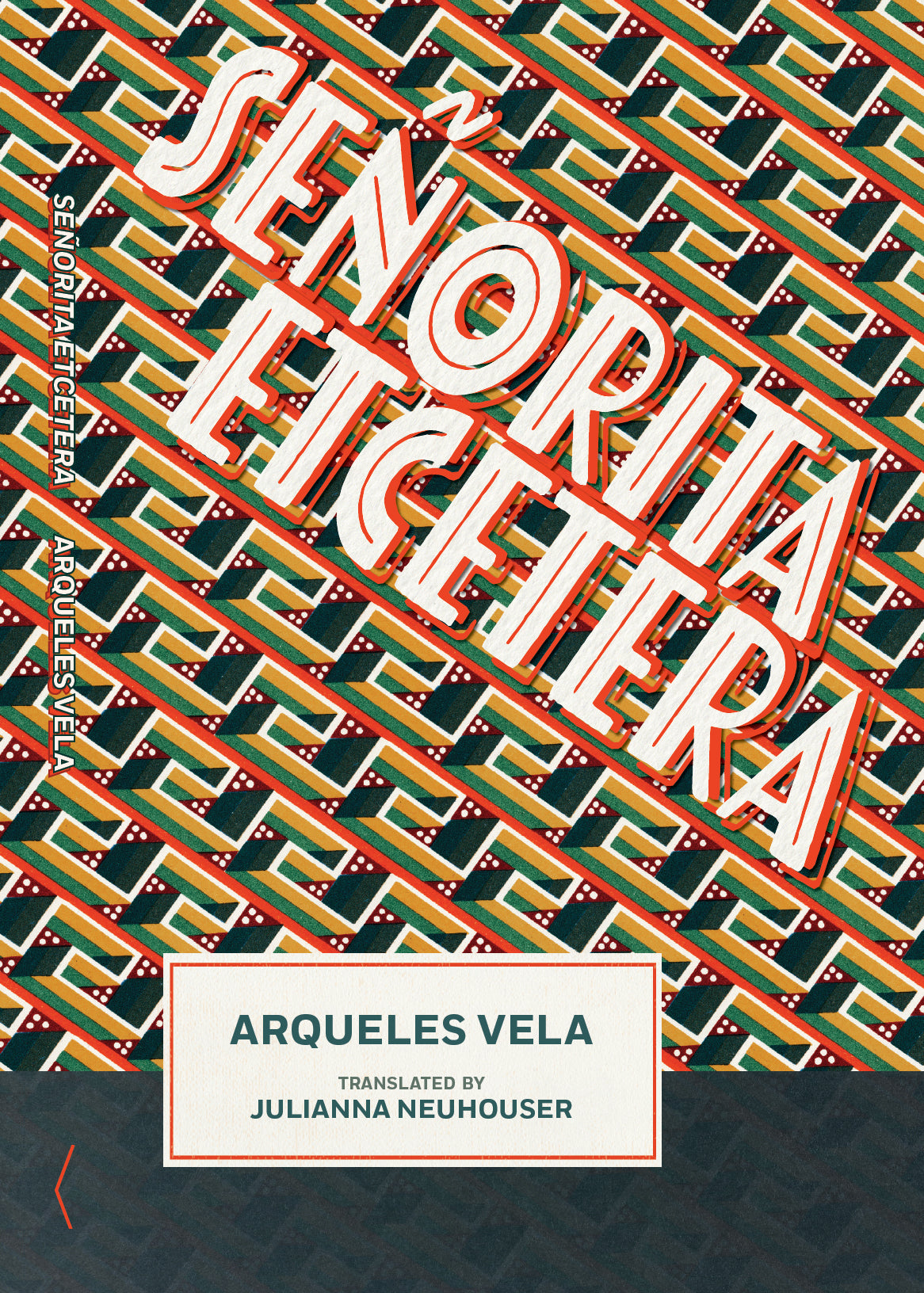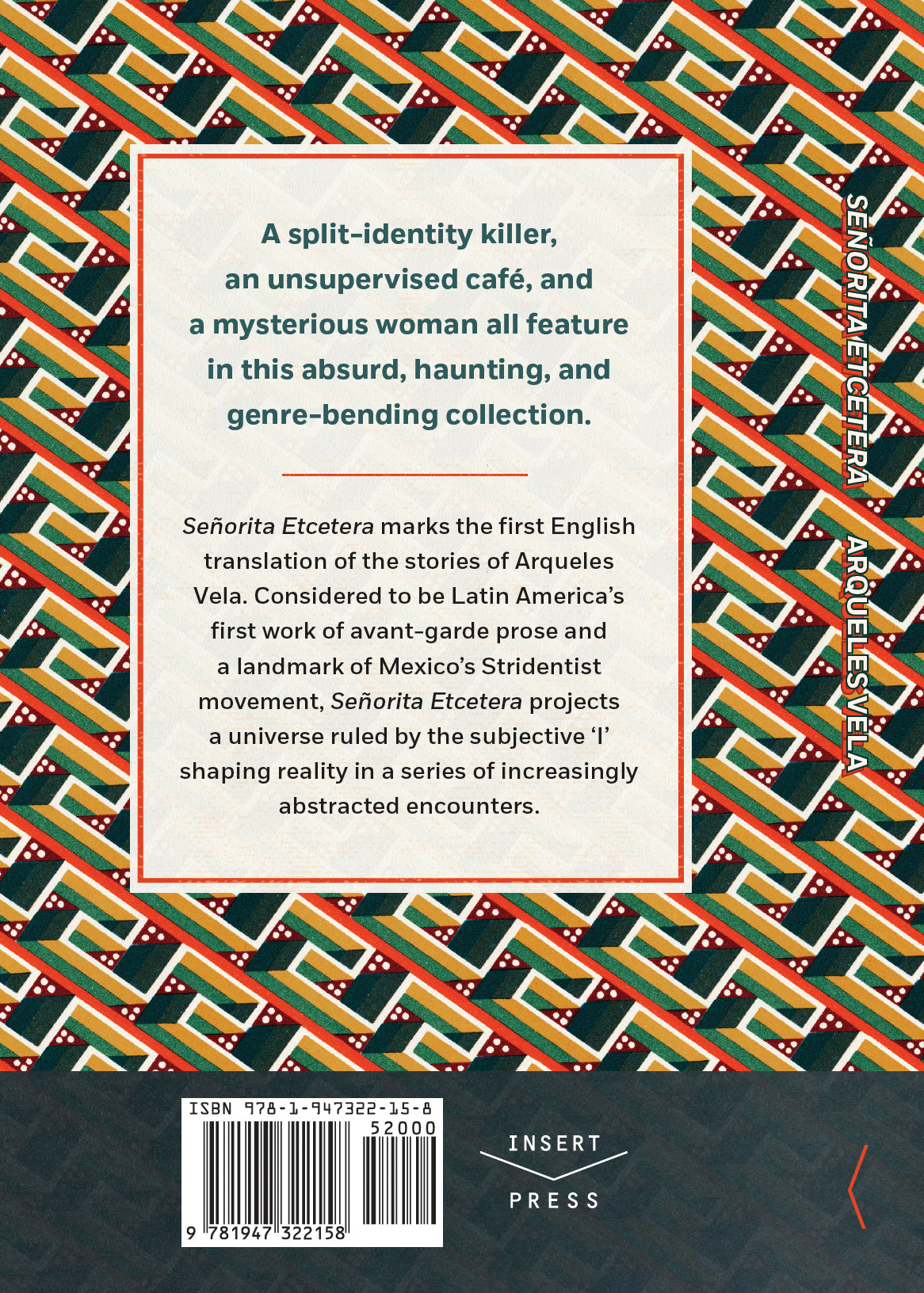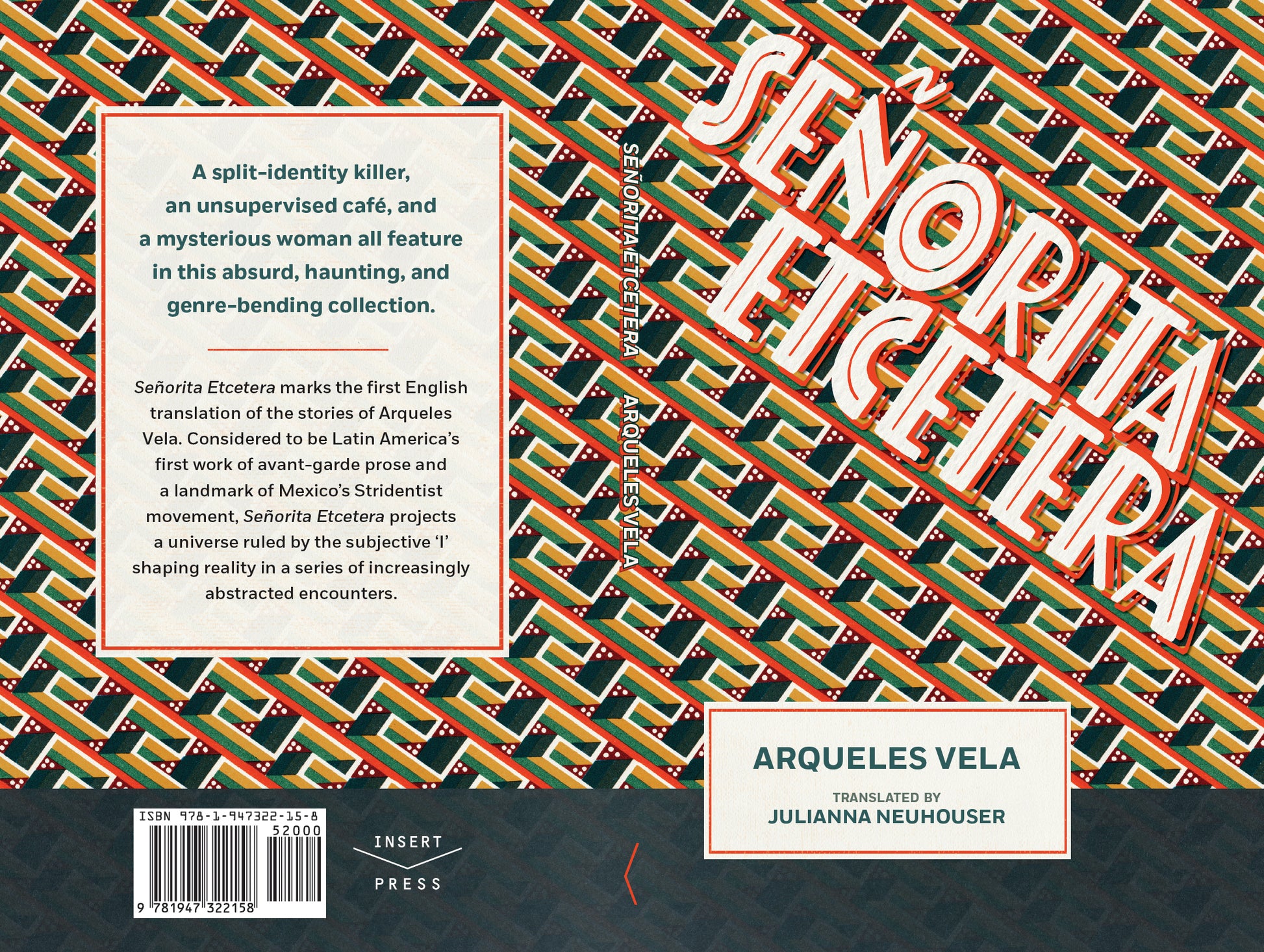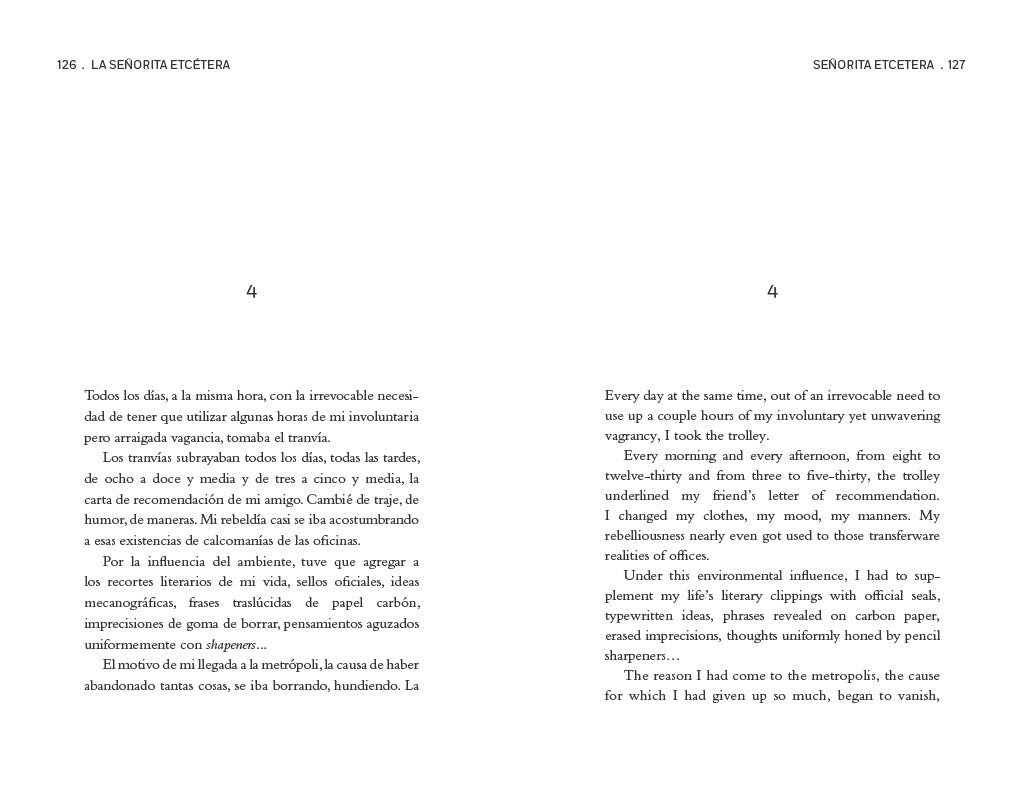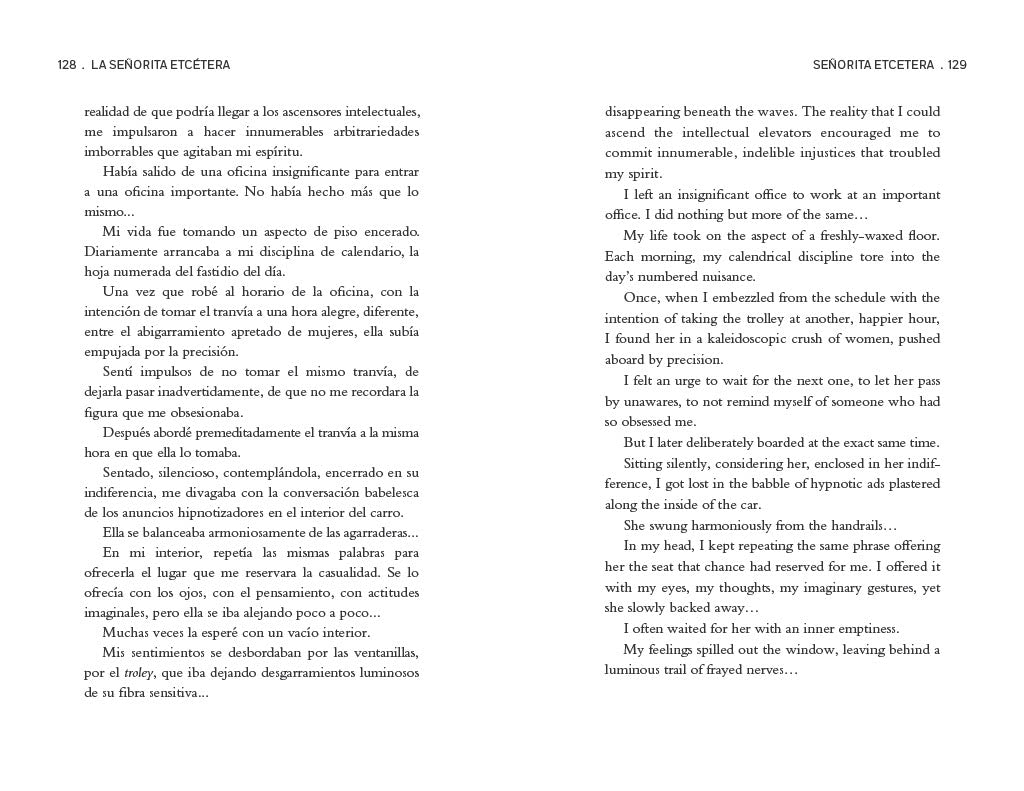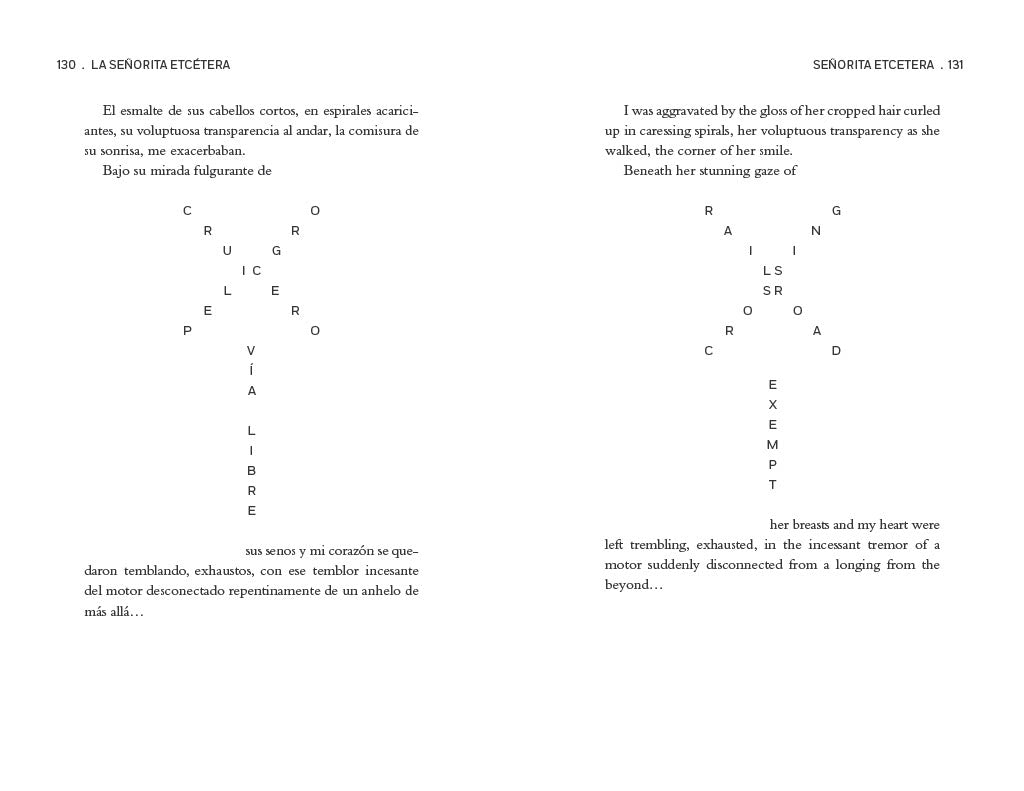Señorita Etcetera
Señorita Etcetera
Arqueles Vela
Translated by Julianna Neuhouser, with an introduction by Veka Duncan
Couldn't load pickup availability
Paperback, bilingual edition, approx 200 pages
ISBN: 978-1-947322-15-8
Cover price: $20
Arqueles Vela’s short story collection Señorita Etcetera, a landmark of Mexico’s Stridentist movement, is considered to be the first work of avant-garde prose from Latin America. The title story was written the same year as Ulysses, albeit “a microbe to the monster of Joyce’s novel,” as Vela would put it in an interview with Roberto Bolaño shortly before his death. Expressing the alienation of the new urban environment and the breakdown of traditional values in the wake of the Mexican Revolution, it follows a series of increasingly abstracted encounters between the narrator and an elusive woman with a plural, contradictory character, whose memory haunts him. “If you reread Señorita Etcetera, you’ll see that it’s the ‘I’ that creates everything,” said Vela decades later. “The conflicts, the realizations: the reality that exists doesn’t exist except through the ‘I.’” This theme of fragmented identity and reality resurfaces in "A Provisional Crime," a parody of murder mysteries in which the riddle is not who the killer is, but which of his many selves is the killer, as well as "Nobody’s Café," which mythologized the café that served as the gathering place for the Stridentists, in real life known as Café Europa, but given its famous nickname due to its desolation. “Nobody cares for it or administers it,” Vela wrote. “No waiters bother the customers, nor does anybody serve them anything... We are the café’s only customers, the only ones who don’t pervert its spirit.” According to the poet Germán List Arzubide, movement leader Manuel Maples Arce simply entered the café one day, found no one and nothing but a pot of coffee, served himself a cup, drank it, and left a tip for the waitress he never once saw. Originally a chronicle of life at the Cabaret Voltaire of Anahuac, the story centers on two men, fictionalized versions of Maples Arce and Vela himself, who haunt the back tables. “In this angle of the café, our intellectual and sentimental laboratory, Maples Arce erected the scaffolding of his poems,” Vela would write. “Señorita Etcetera rebuilt the forms and languidities of women compiled in a certain chair.”
Arqueles Vela (1899-1977) was a key figure in Mexico’s Stridentist movement and is credited with writing the first avant-garde prose in Latin America, La Señorita Etcétera (1922). As editorial secretary of El Universal Ilustrado, he supported prominent writers like Mariano Azuela and helped promote Stridentism. His 1926 collection, Nobody’s Café, introduced experimental prose to Mexican literature. After Stridentism’s decline, Vela traveled Europe as a correspondent and later returned to Mexico to work in arts education. Though his later works are lesser-known, his 1920s writings remain his most significant legacy. He died in Mexico City in 1977.
Julianna Neuhouser is an American-Mexican translator and writer who specializes in radical politics and modern and contemporary art. Her previous translations have included Osvaldo Bayer and Sergio González Rodríguez, while her writings have been published in outlets such as Gatopardo, ZonaDocs, Malvestida, Trans Safety Network, and Revista Común.
Veka Duncan is a Mexican art historian specializing in Mexican art, architecture, urban history, and cultural press of the 19th and 20th centuries. She worked as a researcher for Mexico City’s El Universal, where she developed books for its Centennial, and she has collaborated in over 20 exhibitions in Mexico and abroad as researcher, curator, and translator. Currently, she hosts a television show about Mexico City history and is a columnist for El Cultural and Opinión 51. She is the author of Cara o Cruz: Lázaro Cárdenas (Taurus, 2019) and Luis y Caro vs. los fantasmas de la ciudada (Alfaguara Infantil, 2023).
Praise for Señorita Etcetera
Praise for Señorita Etcetera
